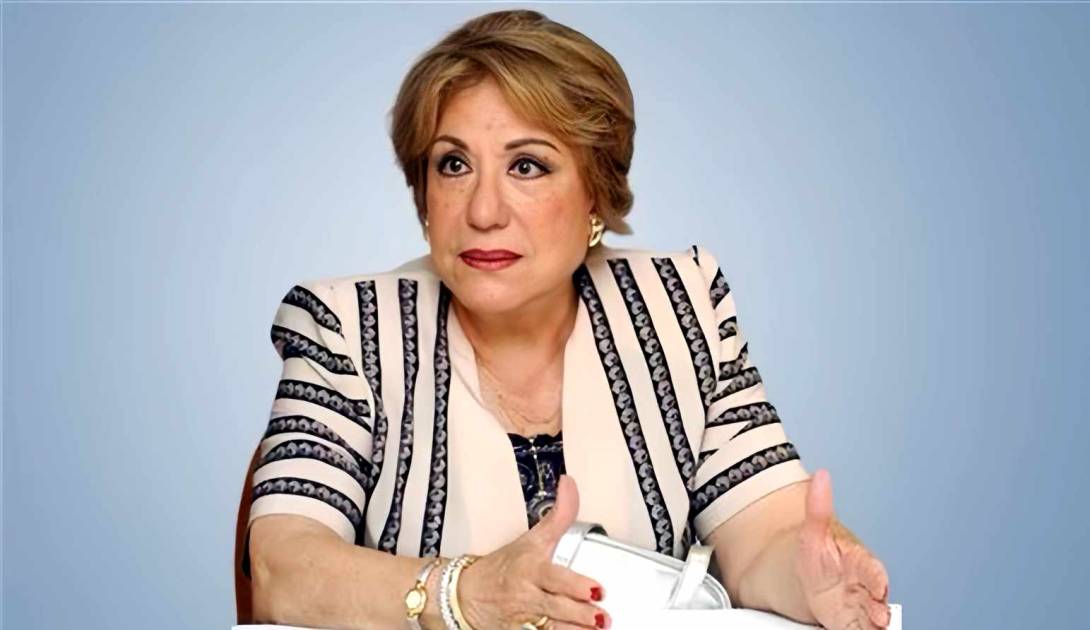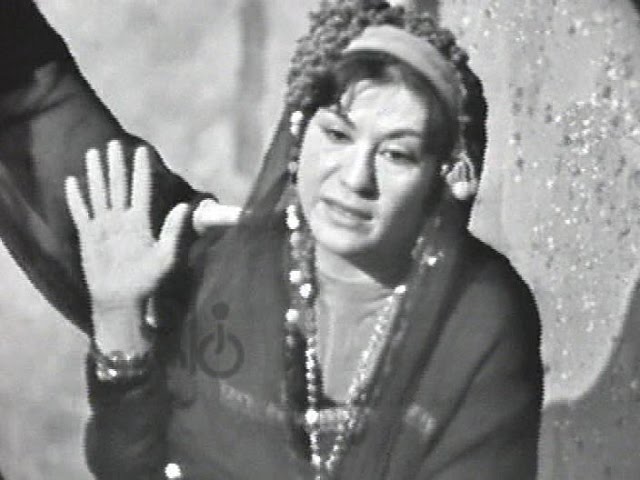About seven months ago, the late great actress Samiha Ayoub (the eighth of March ‘March 1930-third of June’ 2025) conducted a phone call to the journalist Amr Adib on MBC Egypt, during which she appealed to Egyptian President Abdel Fattah El-Sisi to intervene to stop the decision of the Minister of Culture to demolish the “Fatima Rushdi Theater” overlooking the Nile Cairo in the Manial neighborhood, because of this theater of historical symbolism and what he plays in an important role Enriching the Egyptian theater, and embracing two important groups, “The Tarwla and Convention Theater” and “Youth Theater Company”, as well as it bears the name of one of the pioneers of the Egyptian theater.
The appeal of the late artist did not receive any response, and the demolition of the theater, which is one of the most important theaters of Cairo, was not for months until Samiha Ayoub was also left.
Certainly, she was not saddened by the demolition of the theater, as it became famous for its strength and ability to bear the shocks, then the ages are in the hands of God as they say, but it is the paradox that calls for reflection, the demolition of a historical and important theater and the departure of the lady of the theater together, as if it is a message that confirms that “things are falling” in the description of the late Nigerian novelist Xinoa Ashby in his novel that carried the title itself.
Strong
The late artist possessed a strong personality in which the tribulations did not affect (the death of her son Mahmoud from her husband, the late artist Mohsen Sarhan), and the long years of life, as she remained present, whether with her artwork or her participation in the jury of theatrical festivals, or her honorary chair to the Sharm El Sheikh International Festival for Youth Theater since its foundation until now, until she died inside her home in the Zamalek neighborhood naturally Hospitals.
Samiha Ayoub was not just a great artist and a history full of artwork, as she was also a theatrical activist who practiced an important role, whether by adopting young talents, referring to her and presenting them to the artistic scene, or through her role in the theater committee within the Supreme Council of Culture, or through her presidency of the national theater and the modern theater and what the theater witnessed in its hands remarkable.
I had the luck of the late artist, membership of the theater committee in the Supreme Council of Culture, as well as accompanying her in several books outside Egypt. I touched as others who accompanied her or their companions touched the extent of his strong presence, and the extent of her hardness in defending theater issues and their ability to influence others and bias her to the experiences of young people, even that contradicted her artistic orientations and reflects in experimentation, as well as the extent of what she enjoyed despite her extreme seriousness of sarcastic sense, and lightness that may highlight her in her latest cinematic works with the artist. Mohamed Heneidy.
Various personalities
Perhaps those who followed the long march of Samiha Ayoub, which lasted for about 79 years, as she presented her first “homeless” films in 1947, realizes her superior ability to perform various roles, she is the popular lady, Ghanaian woman, grandmother, light -shadow, the strong, driving lady, and the poor woman who is overwhelmed by her matter, and other characters that she played in cinema, theater, television and radio with superior ingenuity and unusual ability Winning in personality and holding her keys.
In addition to her mastery of the performance of all characters, the late was one of the most prominent actresses who performed the international theatrical texts in the classical Arabic language, as in the “Caucasian Classification Department”, “Agammanon”, “Fedra” and other plays that numbered 170, and the French thinker Jean -Paul Sartre described it as “Egyptian Extra” and when he watched it in his play “Flies” that she presented on the national theater in Cairo He ascended to the theater with Simon de Bhaoor, and accepted her, saying to her, “Finally I found Extra in Cairo,” and former French President Valerie Gisarcar Diskar Wissam Fares gave her after she presented the play “Fedra” at the Paris Opera Theater, as well as honoring the late President Gamal Abdel Nasser, as well as President Sisi.
Theater first
Despite the multiplicity of the technical fields that Samiha Ayoub worked in the theater, cinema, radio and television, the theater remained the ether field for her, until she mentioned that she works in cinema until she spends on the stage that was the first starting point and she is a student, she is still, at the Institute of Dramatic Arts, when he believed in her talent, her teacher Zaki Tulaimat, so he presented her in the play “The Queen Major”.
Read more
This section contains relevant folds, placed in (Related Nodes Field)
Contrary to what Kattel mentioned about the history and birthplace of the late artist, that she was born in the Shubra neighborhood during the eighth of March 1932, there is an official document found by theatrical historian Sayyid Ali Ismail, nicknamed “The Theater Garden”, confirms that she was born in the eighth of March 1930 in the Al -Darb Al -Ahmar neighborhood, and the reason for the dispute over the date of birth and the place of birth has a story, not now.
Samiha Ayoub is a director
Perhaps there is no more known that Samiha Ayoub practiced the theatrical directing and presented two works of its directing, and there is a third work that is not available, according to Sayed Ali Ismail, information about its implementation, as a document confirming the approval of censorship on artistic works to implement the theatrical text written by Anwar Abdullah and directed by Samiha Ayoub.
170 plays, about 43 films, 100 TV series and eight radio series, may be achieved only by Samiha Ayoub, it is true that she did not play in the cinema absolute championships as well as in TV series, but she all referred to her great talent and awareness of the nature of the characters that she plays, but the theater remained its vital field that was saved for him more, whether as an actress or as a activist defending His issues, and if she lost her last battle in defending the “Fatima Rushdie” theater and it was not long until she lost her life, but above her bed in her home and without being a burden on anyone, to confirm her worth of the title of the lady of the theater and her right to all the honors and awards that she obtained, until she was the first Egyptian artist to include her name in the sixth grade curriculum in the stage Introducing the Egyptian theater. She set her biography and writing about her in the curriculum, to be part of influential Egyptian personalities.




اترك تعليقاً